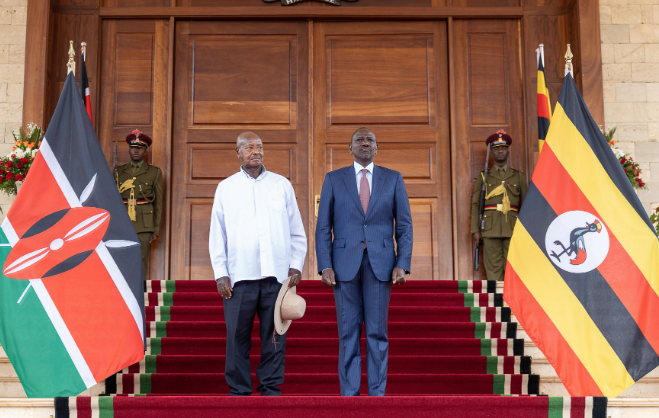
Ugandan President Yoweri Museveni has called on young people across East Africa to shift their attention away from petty political debates and instead focus on meaningful discussions.
Museveni said these discussions should contribute to economic development and regional integration.
Speaking during a media briefing at State House, Nairobi, Museveni expressed disappointment at what he termed as the youth’s tendency to engage in trivial arguments, often overlooking more pressing socio-economic issues.
“When I see you young people do all sorts of things, arguing, I wait to hear the content. I ask myself, what are they arguing about? And then you find they are talking about small things,” Museveni remarked.
He emphasised that modern economies thrive on the production of goods and services, noting that the path to national and continental wealth lies in industrial production and robust intra-African trade.
“The more you produce, especially industrially, the wealthier you become. But after producing, the next important question is—who buys what you produce? The issue of the producer and the consumer is at the centre of any economy,” he said.
Museveni challenged youth leaders and influencers to focus on expanding markets across East Africa and Africa as a whole, rather than limiting their discourse to power struggles and leadership contests.
“Why keep talking about small things like who will be president, who will not? Why are young people not talking about markets, trade, or how to build industries?” he posed.
During the same event, President William Ruto revealed that he will travel to Uganda in October to participate in the groundbreaking ceremony for what is expected to be East Africa’s largest steel plant.
The ambitious project, according to Ruto, will be a joint venture between Kenyan investors and Ugandan partners, symbolising growing economic cooperation between the two nations.
“It’s a partnership that combines Kenyan investment with Uganda’s natural resources,” said President Ruto.
“The steel produced will support our local industries and be exported globally, marking a major step in industrialization for the region.”
The steel plant is expected to significantly boost manufacturing capacity in East Africa, reduce reliance on imported steel, and create thousands of jobs across both countries.
















